Organisation Behaviour: Leadership, Motivation and Teamwork
VerifiedAdded on 2023/03/29
|18
|743
|311
Report
AI Summary
This assignment provides an overview of organisation behaviour, examining different management approaches used by organisations and the impact of various leadership styles on motivation. It compares the application of different motivational theories, assessing their usefulness for managers and highlighting factors that promote the development of effective teamwork. The report emphasizes the importance of motivational theories in improving workplace performance and includes references to support the research conducted. It also touches upon methods to motivate employees and improve business through effective decision-making.
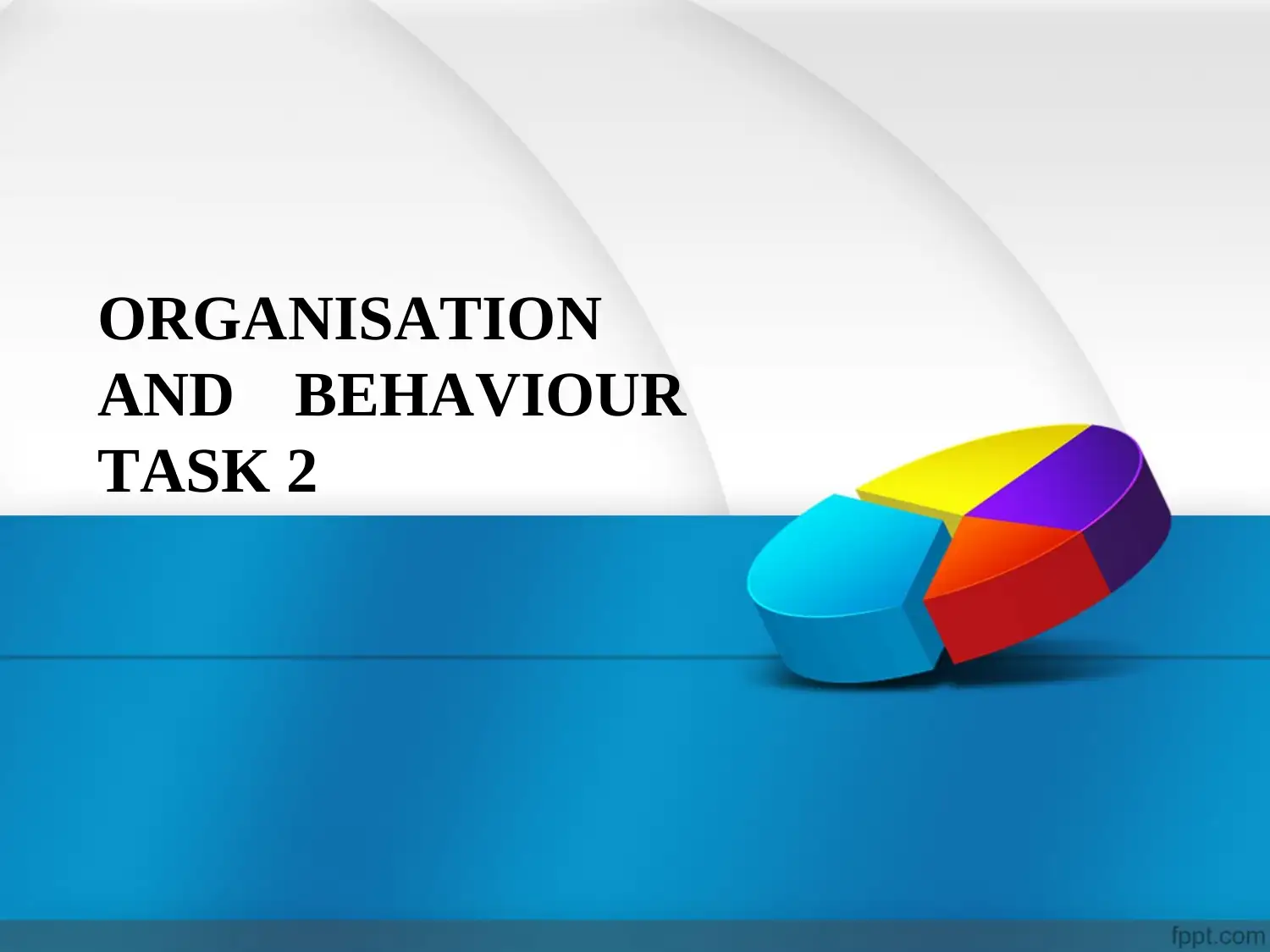
ORGANISATION
AND BEHAVIOUR
TASK 2
AND BEHAVIOUR
TASK 2
Paraphrase This Document
Need a fresh take? Get an instant paraphrase of this document with our AI Paraphraser
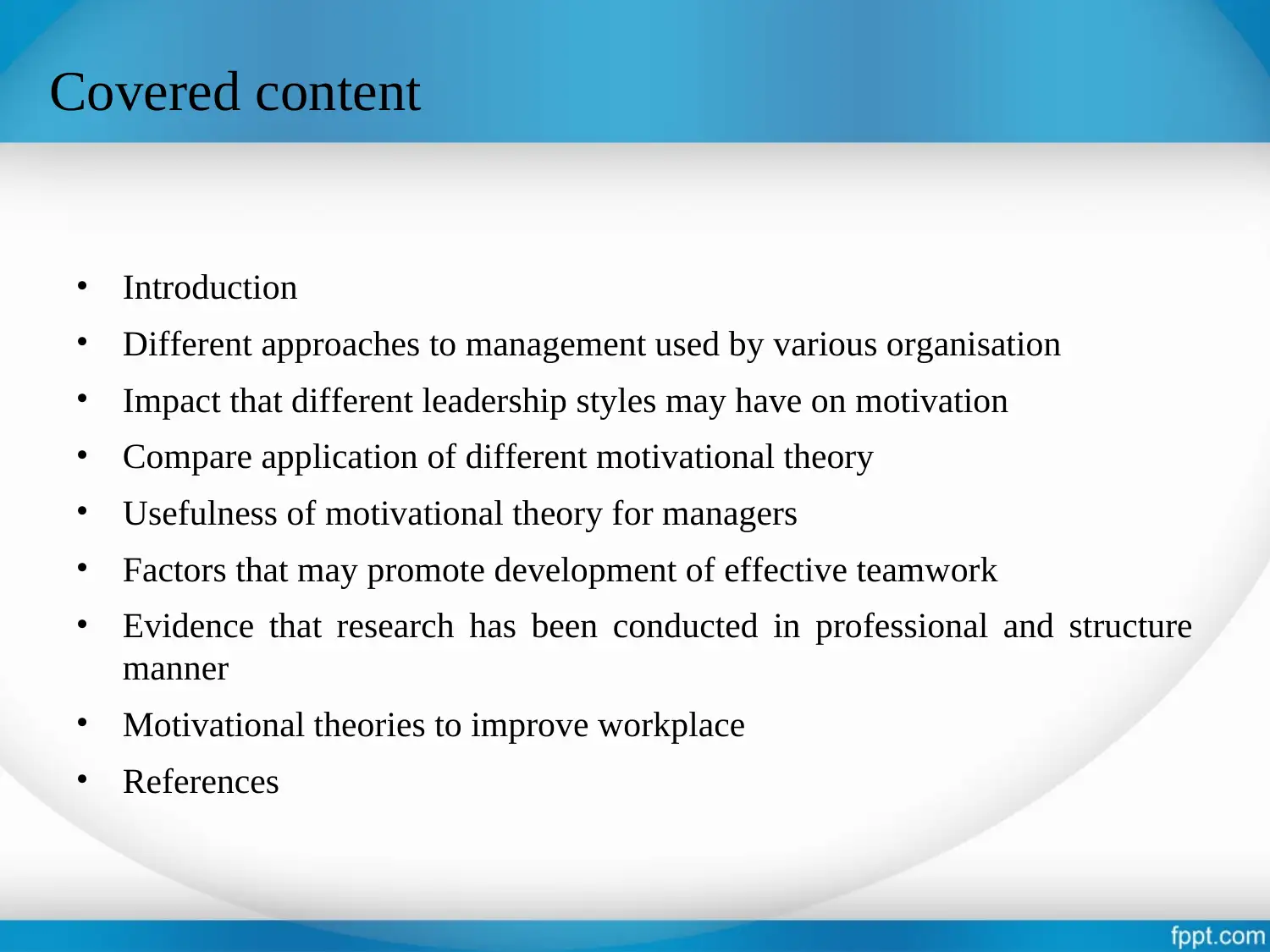
Covered content
• Introduction
• Different approaches to management used by various organisation
• Impact that different leadership styles may have on motivation
• Compare application of different motivational theory
• Usefulness of motivational theory for managers
• Factors that may promote development of effective teamwork
• Evidence that research has been conducted in professional and structure
manner
• Motivational theories to improve workplace
• References
• Introduction
• Different approaches to management used by various organisation
• Impact that different leadership styles may have on motivation
• Compare application of different motivational theory
• Usefulness of motivational theory for managers
• Factors that may promote development of effective teamwork
• Evidence that research has been conducted in professional and structure
manner
• Motivational theories to improve workplace
• References
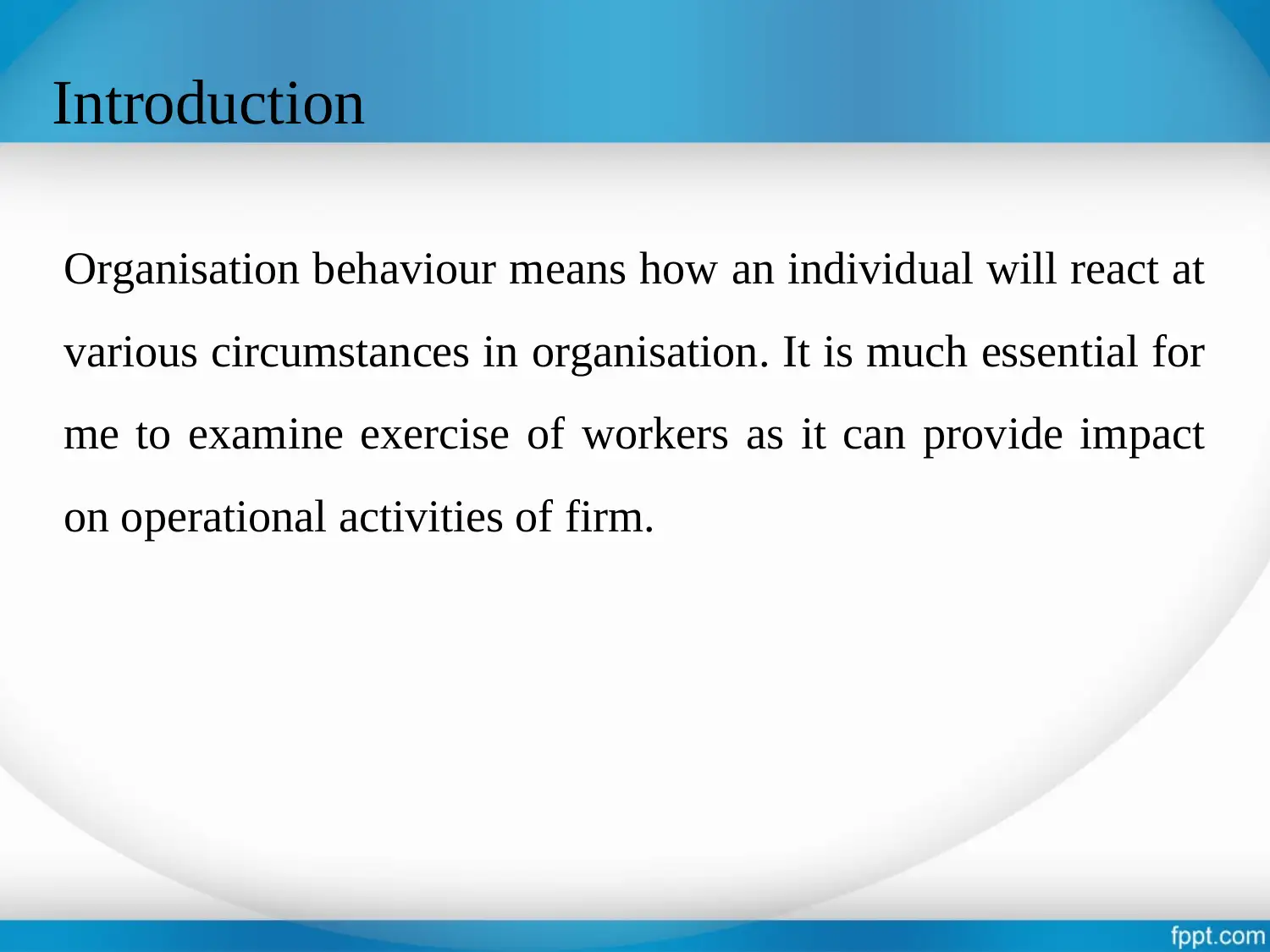
Introduction
Organisation behaviour means how an individual will react at
various circumstances in organisation. It is much essential for
me to examine exercise of workers as it can provide impact
on operational activities of firm.
Organisation behaviour means how an individual will react at
various circumstances in organisation. It is much essential for
me to examine exercise of workers as it can provide impact
on operational activities of firm.
⊘ This is a preview!⊘
Do you want full access?
Subscribe today to unlock all pages.

Trusted by 1+ million students worldwide
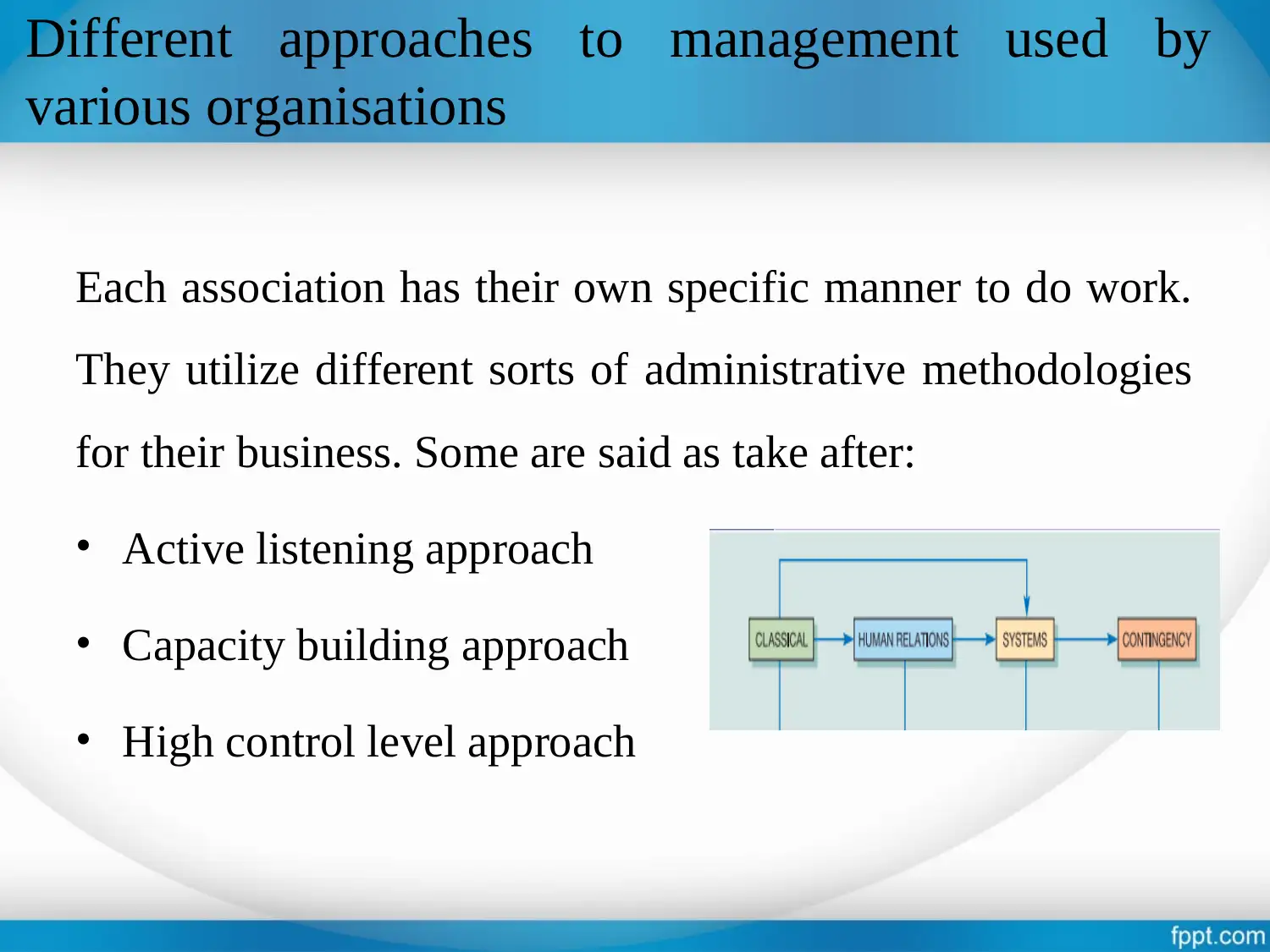
Different approaches to management used by
various organisations
Each association has their own specific manner to do work.
They utilize different sorts of administrative methodologies
for their business. Some are said as take after:
• Active listening approach
• Capacity building approach
• High control level approach
various organisations
Each association has their own specific manner to do work.
They utilize different sorts of administrative methodologies
for their business. Some are said as take after:
• Active listening approach
• Capacity building approach
• High control level approach
Paraphrase This Document
Need a fresh take? Get an instant paraphrase of this document with our AI Paraphraser
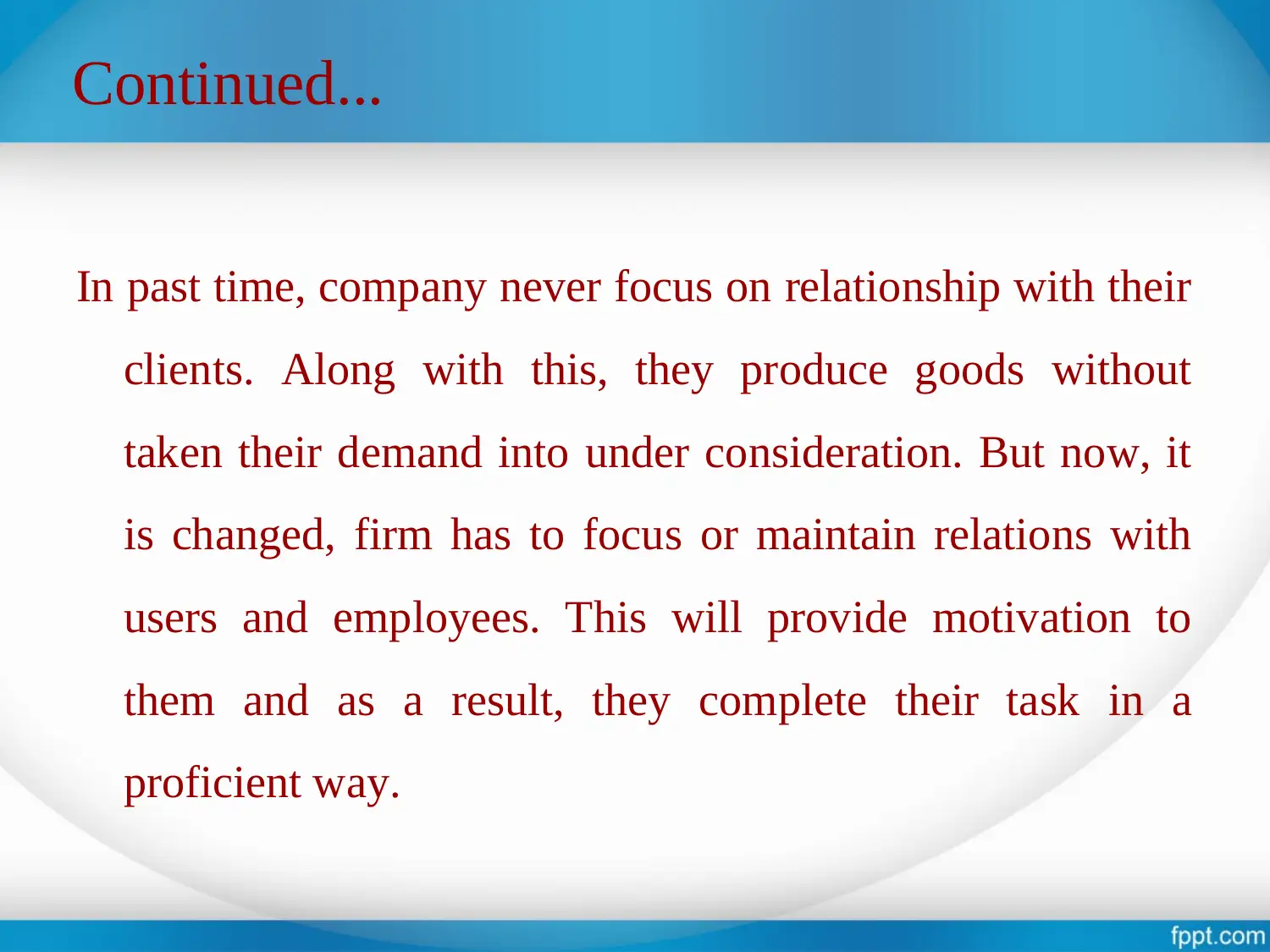
Continued...
In past time, company never focus on relationship with their
clients. Along with this, they produce goods without
taken their demand into under consideration. But now, it
is changed, firm has to focus or maintain relations with
users and employees. This will provide motivation to
them and as a result, they complete their task in a
proficient way.
In past time, company never focus on relationship with their
clients. Along with this, they produce goods without
taken their demand into under consideration. But now, it
is changed, firm has to focus or maintain relations with
users and employees. This will provide motivation to
them and as a result, they complete their task in a
proficient way.
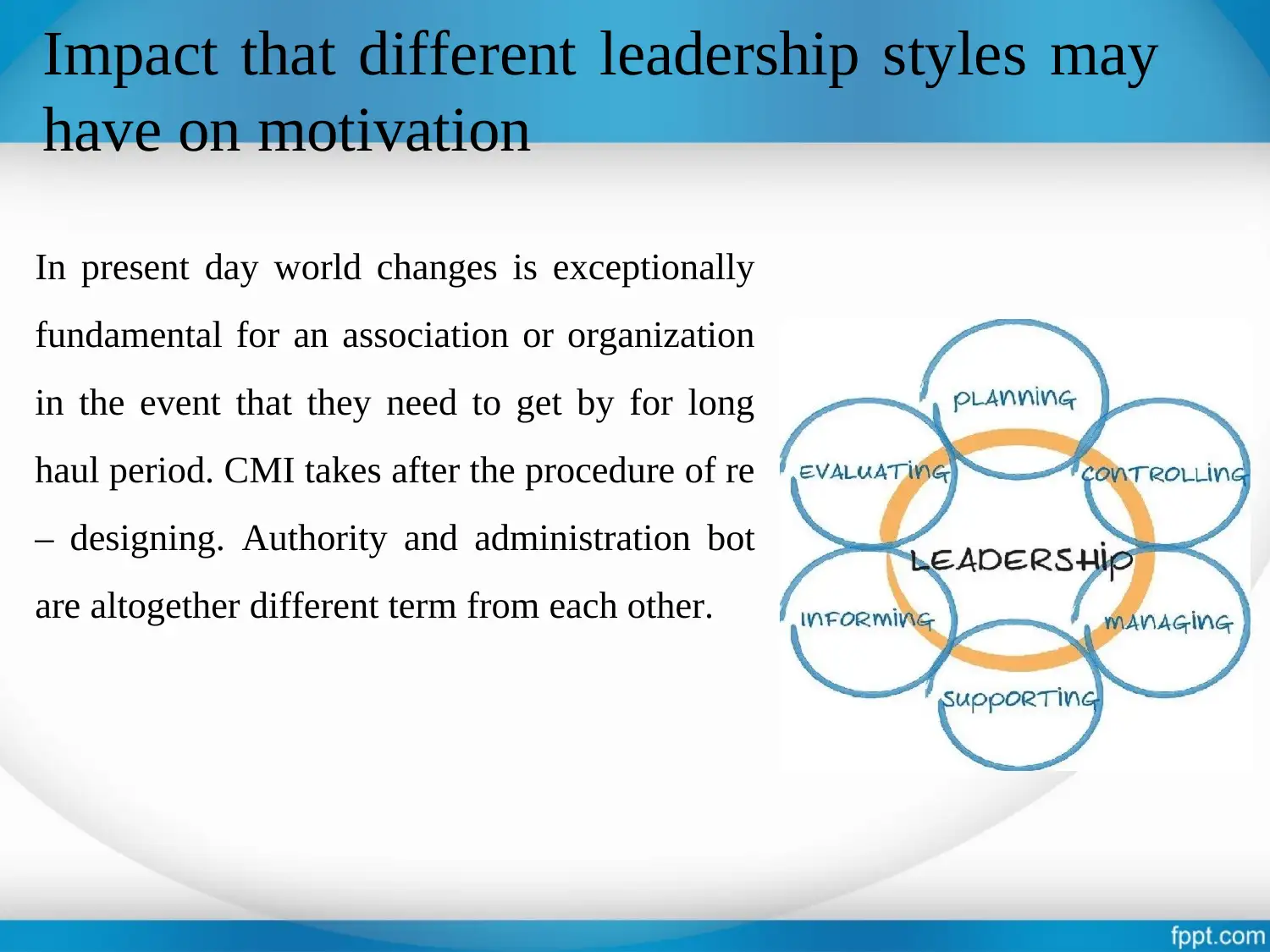
Impact that different leadership styles may
have on motivation
In present day world changes is exceptionally
fundamental for an association or organization
in the event that they need to get by for long
haul period. CMI takes after the procedure of re
– designing. Authority and administration bot
are altogether different term from each other.
have on motivation
In present day world changes is exceptionally
fundamental for an association or organization
in the event that they need to get by for long
haul period. CMI takes after the procedure of re
– designing. Authority and administration bot
are altogether different term from each other.
⊘ This is a preview!⊘
Do you want full access?
Subscribe today to unlock all pages.

Trusted by 1+ million students worldwide
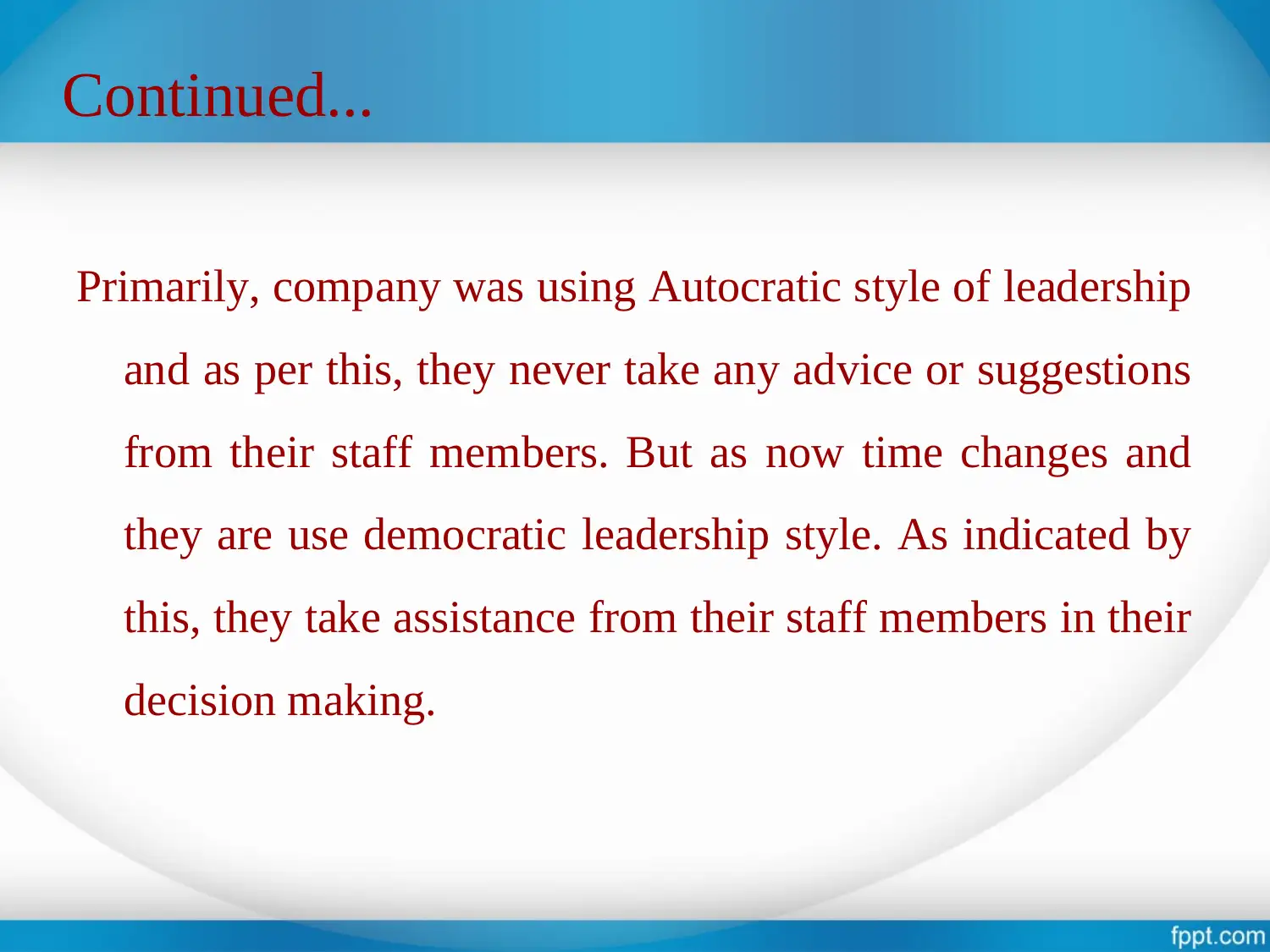
Continued...
Primarily, company was using Autocratic style of leadership
and as per this, they never take any advice or suggestions
from their staff members. But as now time changes and
they are use democratic leadership style. As indicated by
this, they take assistance from their staff members in their
decision making.
Primarily, company was using Autocratic style of leadership
and as per this, they never take any advice or suggestions
from their staff members. But as now time changes and
they are use democratic leadership style. As indicated by
this, they take assistance from their staff members in their
decision making.
Paraphrase This Document
Need a fresh take? Get an instant paraphrase of this document with our AI Paraphraser
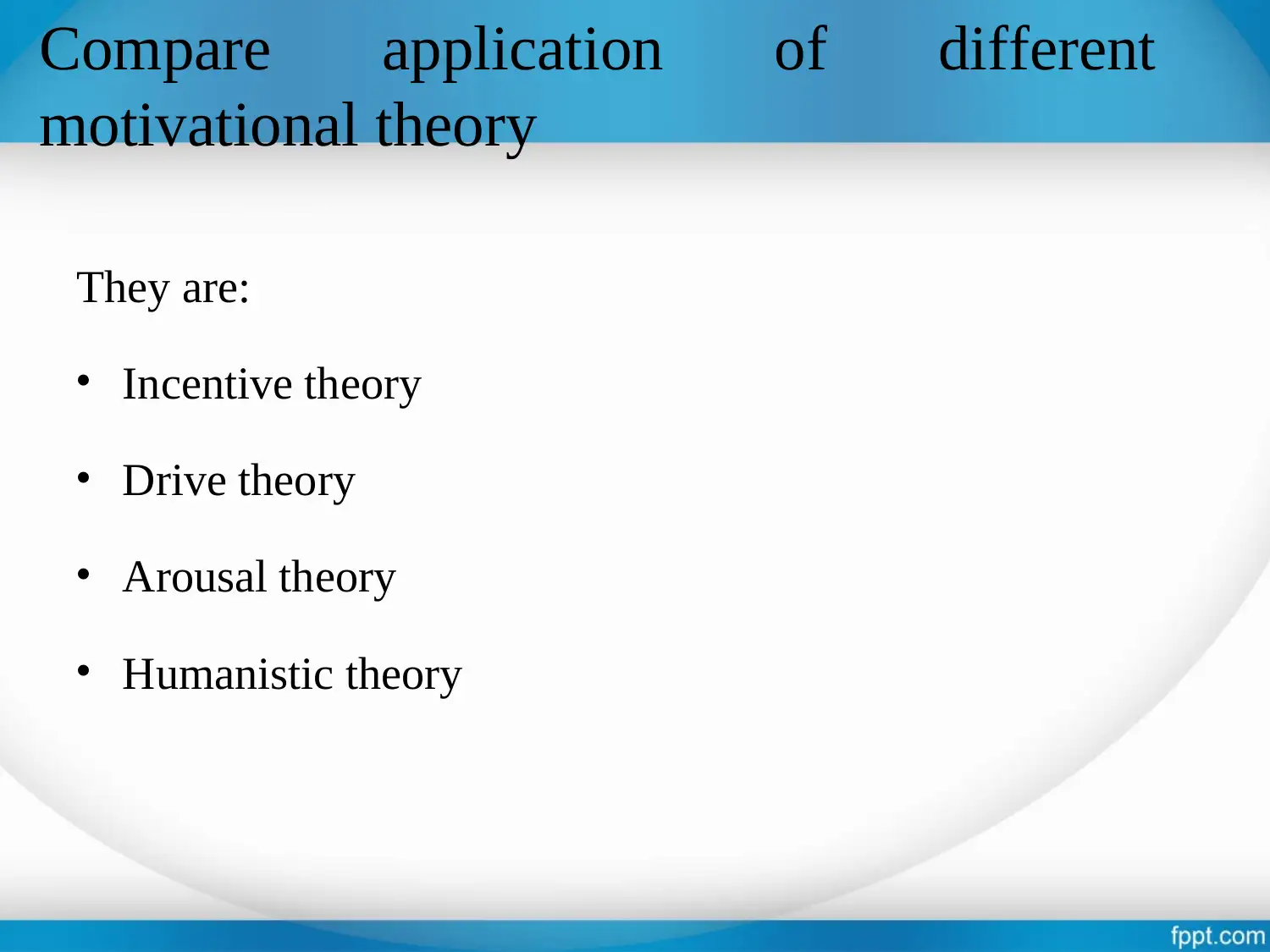
Compare application of different
motivational theory
They are:
• Incentive theory
• Drive theory
• Arousal theory
• Humanistic theory
motivational theory
They are:
• Incentive theory
• Drive theory
• Arousal theory
• Humanistic theory
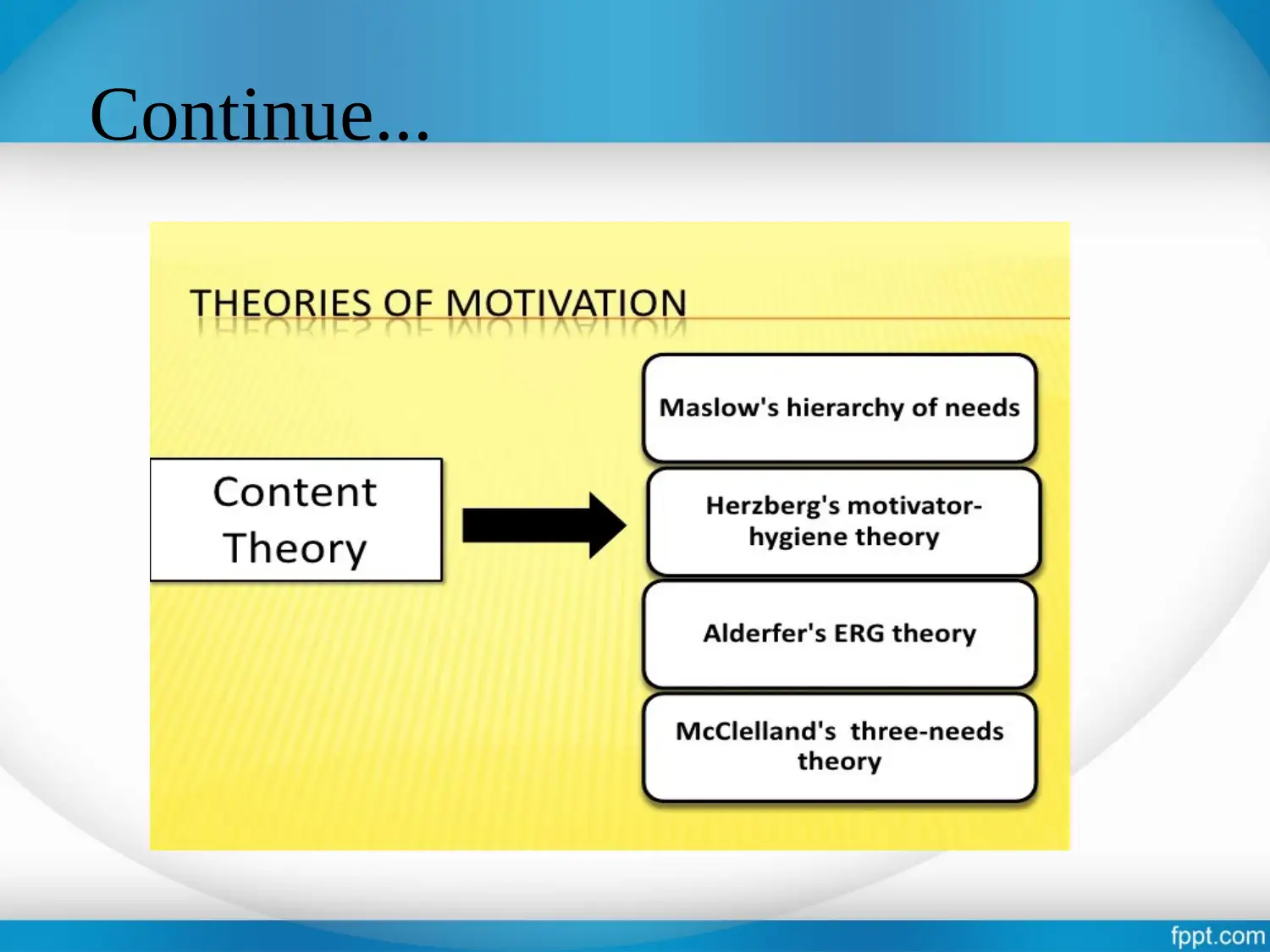
Continue...
⊘ This is a preview!⊘
Do you want full access?
Subscribe today to unlock all pages.

Trusted by 1+ million students worldwide
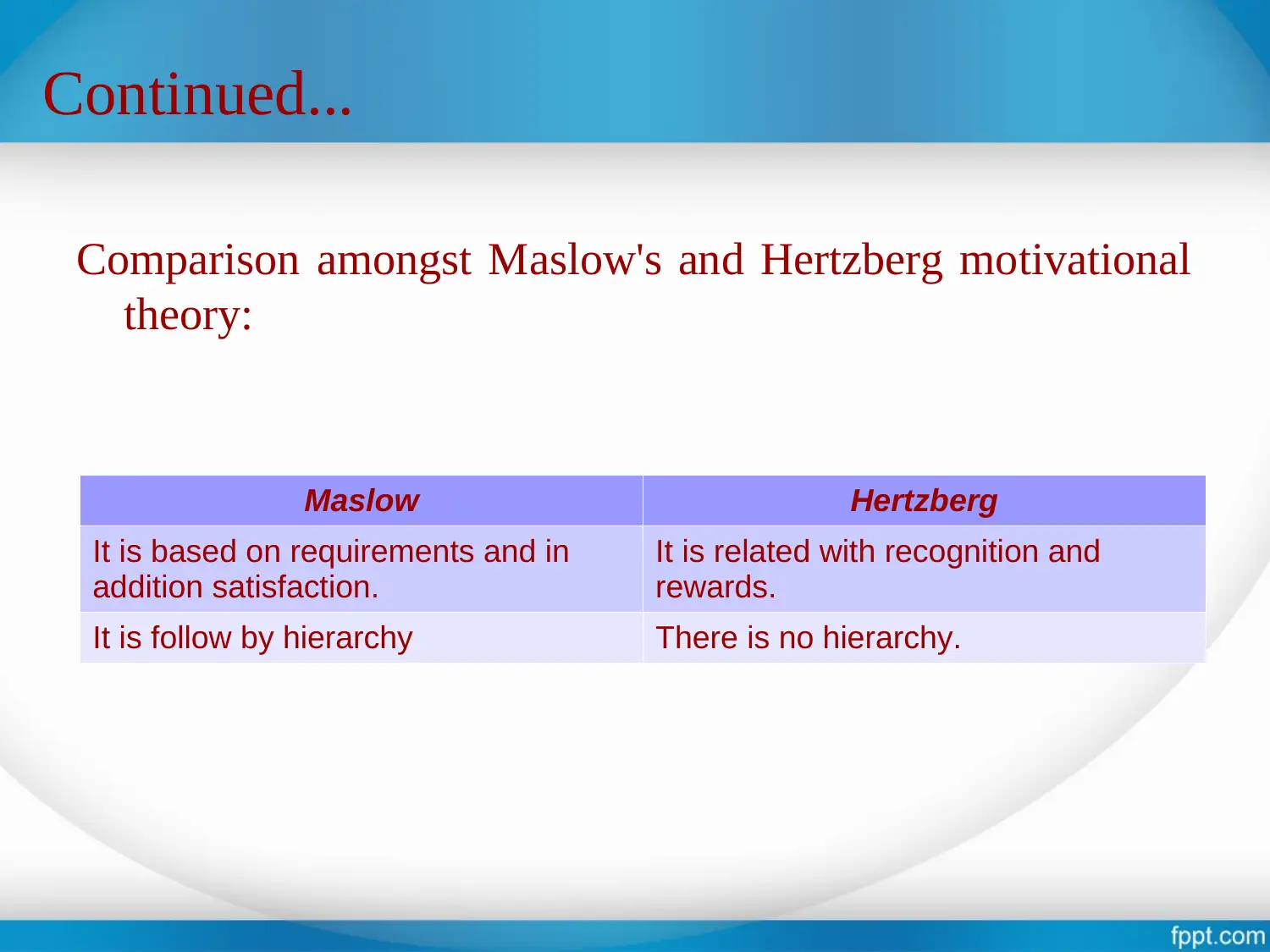
Continued...
Comparison amongst Maslow's and Hertzberg motivational
theory:
Maslow Hertzberg
It is based on requirements and in
addition satisfaction.
It is related with recognition and
rewards.
It is follow by hierarchy There is no hierarchy.
Comparison amongst Maslow's and Hertzberg motivational
theory:
Maslow Hertzberg
It is based on requirements and in
addition satisfaction.
It is related with recognition and
rewards.
It is follow by hierarchy There is no hierarchy.
Paraphrase This Document
Need a fresh take? Get an instant paraphrase of this document with our AI Paraphraser
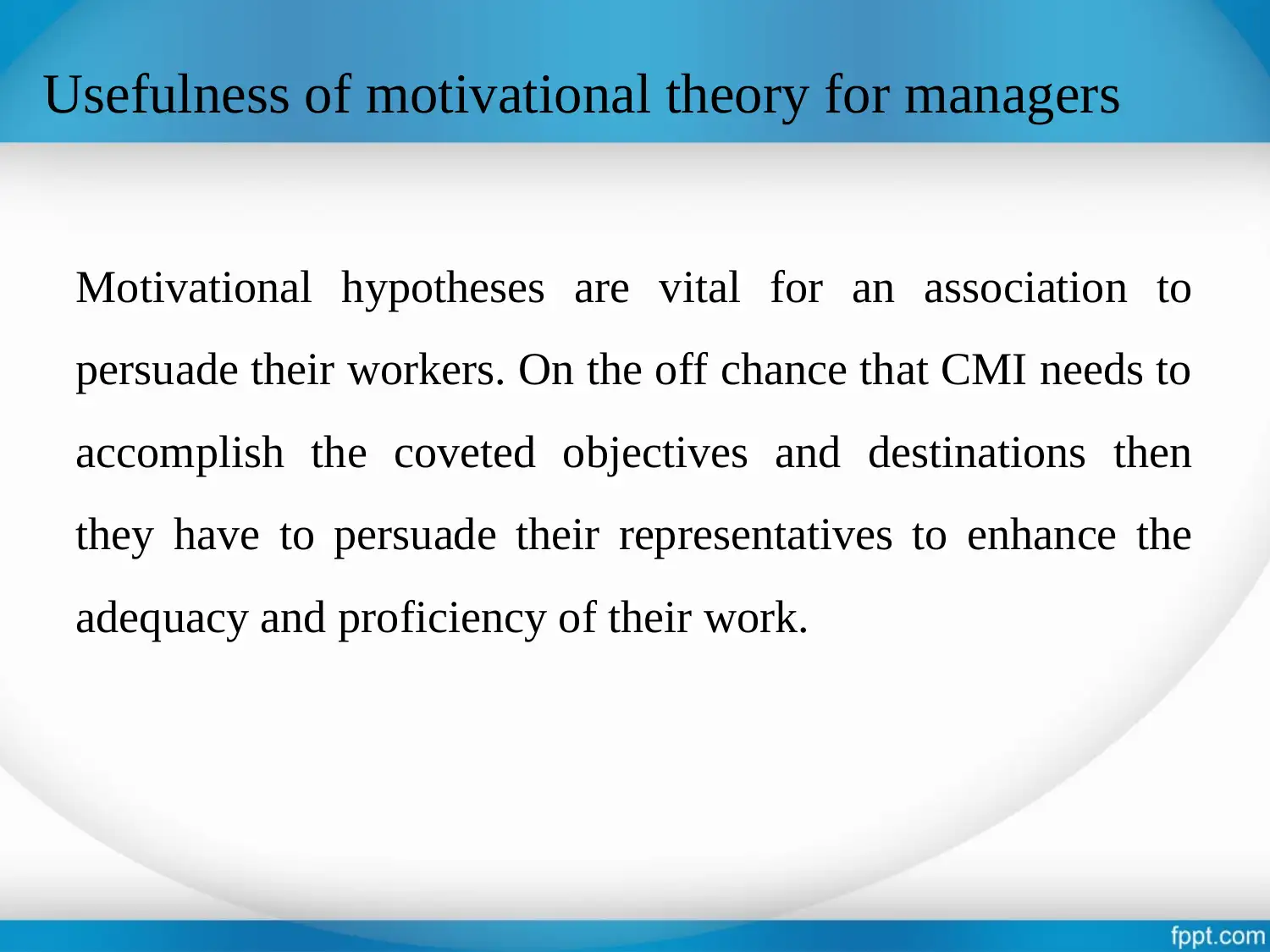
Usefulness of motivational theory for managers
Motivational hypotheses are vital for an association to
persuade their workers. On the off chance that CMI needs to
accomplish the coveted objectives and destinations then
they have to persuade their representatives to enhance the
adequacy and proficiency of their work.
Motivational hypotheses are vital for an association to
persuade their workers. On the off chance that CMI needs to
accomplish the coveted objectives and destinations then
they have to persuade their representatives to enhance the
adequacy and proficiency of their work.
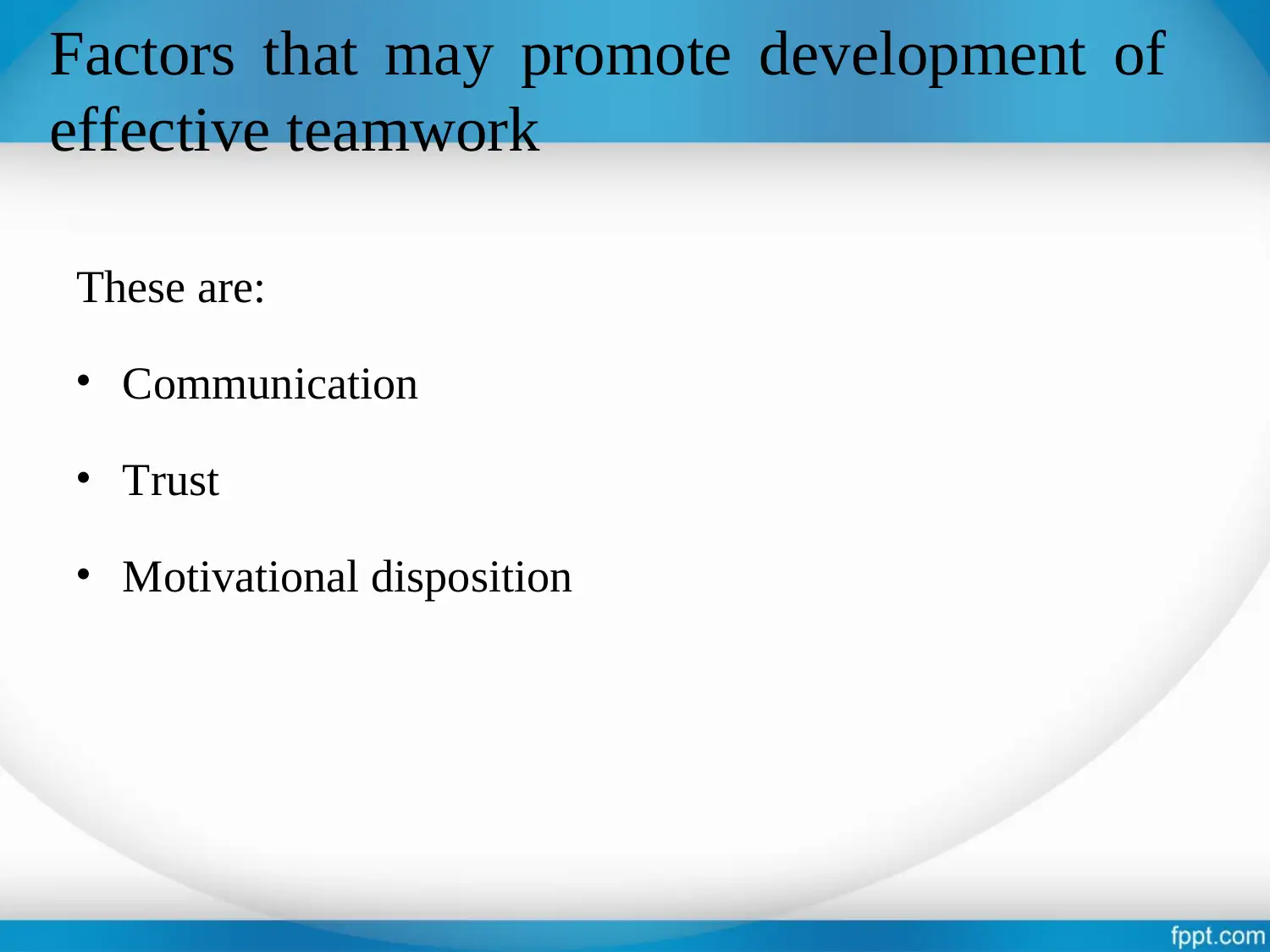
Factors that may promote development of
effective teamwork
These are:
• Communication
• Trust
• Motivational disposition
effective teamwork
These are:
• Communication
• Trust
• Motivational disposition
⊘ This is a preview!⊘
Do you want full access?
Subscribe today to unlock all pages.

Trusted by 1+ million students worldwide
1 out of 18
Related Documents
Your All-in-One AI-Powered Toolkit for Academic Success.
+13062052269
info@desklib.com
Available 24*7 on WhatsApp / Email
![[object Object]](/_next/static/media/star-bottom.7253800d.svg)
Unlock your academic potential
Copyright © 2020–2026 A2Z Services. All Rights Reserved. Developed and managed by ZUCOL.





